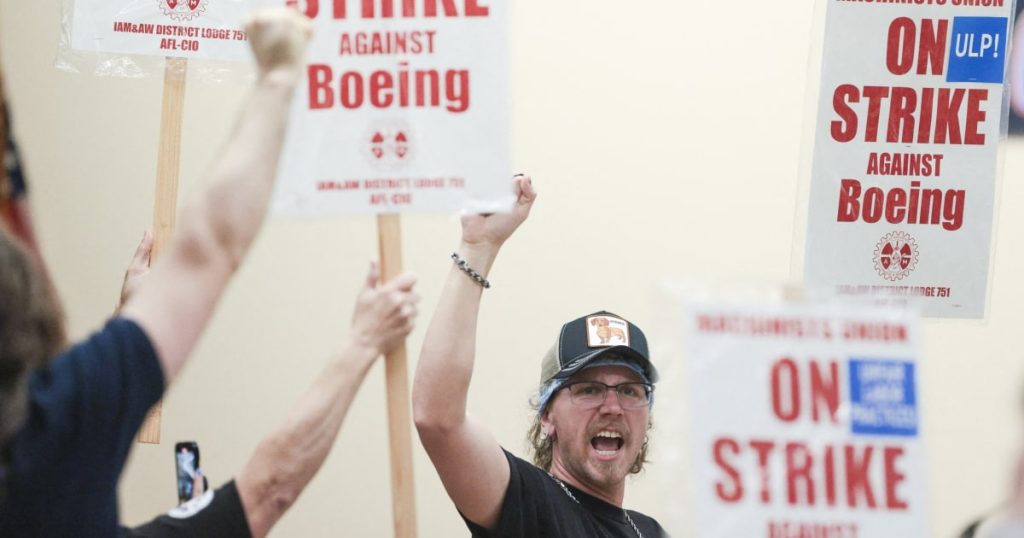Boeing’s factory workers recently went on strike after rejecting a new labor contract, causing production of the company’s best-selling airplanes to come to a halt. The workers in the Seattle area and in Oregon voted overwhelmingly against the tentative agreement that had been proposed by Boeing and the International Association of Machinists and Aerospace Workers. The workers alleged unfair labor practices and felt that the agreement did not meet their needs, leading to a decision to go on strike. Boeing responded by stating their commitment to reset their relationship with their employees and the union and expressed readiness to continue negotiating for a new agreement.
The proposed contract included a 25% wage increase and improvements to health care and retirement benefits, but the workers were hoping for raises closer to 40% to cover the increased cost of living. The rejection of the tentative agreement was a significant blow to CEO Kelly Ortberg, who had assumed his role only five weeks prior to the vote. He had urged the workers not to strike, emphasizing the potential negative impact on the company’s recovery. The agreement, if approved, would have been the first fully negotiated contract for Boeing machinists in 16 years, highlighting the importance of the decision and its outcomes for both the company and its employees.
The financial implications of the strike could be substantial, depending on its duration. Boeing shares fell by 4% in premarket trading following the announcement of the strike. Analysts estimated a potential cash impact of $1.5 billion for Boeing if the strike lasted for 30 days, with potential disruption to suppliers and supply chains. The tentative agreement that was rejected would have had an annual impact of $900 million if approved. Boeing has faced challenges in ramping up production and restoring its reputation following safety crises and production issues, with the company having burned through $8 billion so far this year and facing mounting debt.
The strike comes at a challenging time for Boeing as it seeks to address manufacturing flaws and industry-wide problems such as supply and labor shortages. Federal scrutiny of Boeing’s production processes has increased following the blowout of a nearly new Boeing 737 Max 9 at the beginning of the year. The company’s struggles with meeting production targets and addressing quality issues have contributed to its challenging financial situation. The strike represents a significant setback for Boeing as it works to navigate these challenges and rebuild its relationship with its employees and union members.
The decision to go on strike reflects the dissatisfaction of Boeing’s factory workers with the proposed labor contract and their concerns about their wages, benefits, and working conditions. The rejection of the agreement highlights the challenges that the company faces in balancing the needs and expectations of its workforce with its operational goals and financial obligations. The strike has implications not only for Boeing’s production and financial performance but also for its reputation and relationships with its employees and the union. Moving forward, both sides will need to engage in further negotiations to reach a new agreement that addresses the concerns of the workers while also aligning with Boeing’s strategic objectives and financial constraints.


